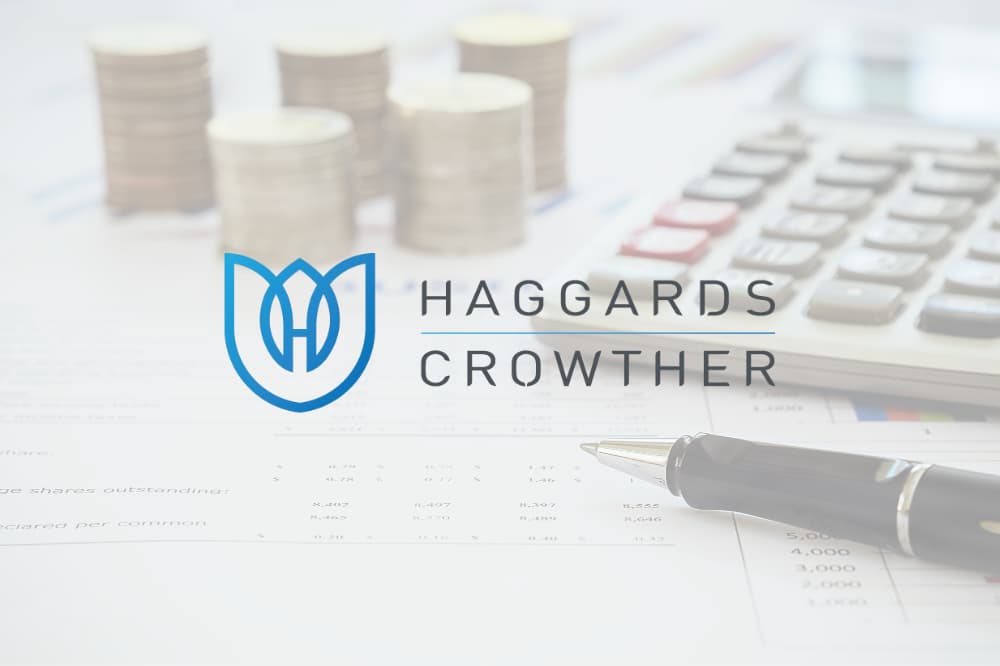
8 Expenses You Can Claim When Self Employed
7th March, 2025
Are you self-employed and looking for ways to maximise your tax savings? You’re not alone.
When tax season rolls around, many self-employed people find themselves tackling their self-assessment and wondering… what can I claim?
The good news? There are plenty of claimable expenses to lower your tax bill and keep more of your hard-earned money. But figuring out what counts can feel confusing and overwhelming.
That’s where we come in.
At Haggards Crowther, we are here to guide you through the process and ensure you claim everything you’re entitled to.
1. Office Expenses
If you work from home, you’re in luck. You can declare a portion of your home-related expenses, including rent, utilities, and internet costs. This is especially valuable for freelancers and small business owners working from their home office.
You might also be able to claim a percentage of your home bills based on how much of your space is dedicated to your business.
Not only will this reduce your taxable income, but it will also show HMRC that you’re running your business efficiently. The key here is to be accurate and keep detailed records of your calculations all year round.
What you can claim: Rent, utilities (electricity, gas, water), internet, and phone bills.
2. Travel and Vehicle Expenses
Travelling for business is a common occurrence when you work for yourself.
Whether it’s driving to a client meeting or attending an industry event, you can claim the costs of any business-related travel.
You can also claim a proportion of your car’s running costs if you use it for business. This includes fuel, insurance, repairs, and even the depreciation of the car.
What you can claim: Mileage (45p per mile for the first 10,000 miles), train fares, taxis, and parking fees.
3. Business Equipment and Tools
If you’re self-employed, you’re likely to need to buy equipment and tools to keep your business running, whether it’s a laptop, specialised gear, or everyday essentials.
The good news? These costs can be deducted from your taxable income, meaning you’ll pay less tax.
Just be sure to keep your receipts!
What you can claim: Laptops, phones, cameras, and tools directly related to your work.
4. Training and Courses
Improving your skills can enhance your business’s profitability, and it can also reduce your taxable income.
The cost of training and courses directly related to your business can be deducted as an expense.
If you’re investing in yourself, HMRC wants to encourage it. After all, the more skilled you are, the more successful your business will be.
This is a unique opportunity to declare something that helps grow your career while lowering your tax bill.
What you can claim: Course fees, training materials, and exam fees.
5. Professional Services
When you’re self-employed, getting expert help isn’t just useful, it’s essential for keeping your business running smoothly.
From legal advice to accounting support and marketing guidance, these professional services can make a big difference to your business.
And the best part?
If you’ve hired a professional to handle your taxes or offer business advice, you can deduct the cost as an expense. That means you’re not only gaining valuable expertise, but you’re also saving money on your tax bill.
What you can claim: Accountancy fees, legal fees, marketing advice, and business coaching.
6. Marketing and Advertising
To stand out in today’s competitive market, self-employed professionals often need to invest in marketing and advertising.
Whether it’s digital marketing and SEO, print ads or promotional materials, these costs are vital to your business’s growth.
Marketing your business is a necessity, so don’t overlook these expenses when completing your self-assessment.
Not only will it help your business, but it’ll also reduce the tax burden you carry.
What you can claim: Website costs, social media advertising, print materials, and SEO services.
7. Insurance Premiums
When you’re self-employed, protecting yourself and your business with insurance is imperative!
Whether it’s public liability insurance, professional indemnity insurance, or business insurance, these premiums can be claimed as a business expense.
Insurance not only keeps your business secure, but it’s also tax-deductible. If something goes wrong, your insurance can help mitigate costs, and you’ll be able to deduct the premiums when filing your taxes.
What you can claim: Insurance premiums for coverage related to your business.
8. Subscriptions and Memberships
Professional subscriptions and memberships can help you stay ahead in your industry.
Whether it’s a trade association, software subscription, or journal, these can all count as legitimate business expenses.
Being part of these networks offers added value to your business, so don’t forget to declare these costs when submitting your self-assessment.
What you can claim: Membership fees to trade associations, software subscriptions, industry journals, and online resources.
Maximise Your Claims With Haggards Crowther!
With so many potential expenses to claim, it’s easy to see why many self-employed people miss out on significant savings.
At Haggards Crowther, we specialise in guiding self-employed workers through their tax planning journey.
Whether you’re at the beginning of starting your own business or have been battling your self-assessment alone for years, don’t hesitate to contact us at enquiries@haggards.co.uk.
Our team is here to help you navigate the intricacies of self-employment tax returns and make sure you acquire what’s rightfully yours.

Terry started life at HM Revenue and Customs before moving to Ashdens and then on to BDO and Chantrey Vellacott, the combination of which has provided Terry with a wide breadth of experience which has proved invaluable when helping a broad range of clients with their tax affairs.
Whether it involves meticulously organising a client’s tax affairs or leveraging his expertise to mitigate their tax exposure, Terry has a passion for delivering tangible results.





